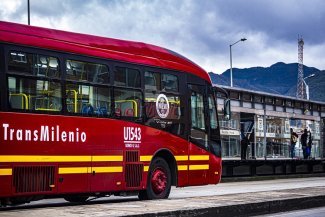We’ve been waiting over a decade to say this, and now we can: as of 20 August, 2013, a seafarers’ bill of rights exists. The Maritime Labour Convention 2006 (MLC) has come into force.
The MLC lays out minimum rights for seafarers and promotes good employment practices across the shipping industry. It incorporates and builds on 68 existing maritime labour conventions and recommendations to ensure decent working and living conditions.
The convention also stipulates that everyone working on board a cruise ship making international voyages is a seafarer and entitled to the protections it guarantees – the first time ever that workers on cruise ships have fallen under such a definition.
Cruise ship workers will now have the right to a safe and secure workplace, fair terms of employment, decent living and working condition, access to medical care, health protection and welfare.
The MLC has been described as the fourth pillar of shipping regulation, alongside Solas (International Convention for Safety of Life at Sea), Marpol (International Convention for Prevention of Pollution from Ships) and the STCW (Standards of Training, Certification and Watchkeeping), and is intended to be strictly enforced by flag states and port state control.
It should provide a ‘one-stop shop’ for labour standards, so all seafarers should be able to enjoy comprehensive protection of their fundamental rights.
It should also ensure good employment practice across the industry, creating a level playing field in which good ship operators are not put at an economic disadvantage by bad ones.
The MLC addresses a range of matters, including: the obligations of shipping companies with respect to seafarers’ contractual arrangements; the responsibilities of manning agencies; working hours; health and safety; existing ILO maritime standards; and accepted good employment practice.
Under it, every ship over 500 gross tonnage operating in international waters or between ports of different countries will have to have a maritime labour certificate issued by its flag administration following an inspection. There will also be a requirement for ships to complete and maintain on board a declaration of maritime labour compliance.
There are also significant provisions on welfare. States will be invited to set up welfare boards, as well as to consider the upgrading of existing seafarers’ welfare facilities and the establishment of new ones.
The International Transport Workers’ Federation (ITF) has worked alongside shipping organisations, the International Labour Organisation (ILO) and governments for over a decade to jointly create and shape the MLC, and is committed to monitoring and assisting its implementation and persuading many more countries to ratify it.
Ratification and clear implementation will give this convention the force it deserves and help ensure that seafarers everywhere finally get the rights and recognition that they need and deserve.
The ITF is committed to making the MLC a success for seafarers. To find out more about what it means for seafarers please visit http://www.itfmlc.org









